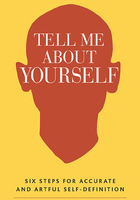
Meaningful moments
Take a moment to consider the greatest stories you’ve ever heard. Whether they’re tall tales passed down at family gatherings, representations of significant figures taught in textbooks, or modes of perception created by the media, narratives agitate, educate, inspire, and motivate us by reframing some of life’s most memorable and meaningful moments. Narratives help us uncover and create new truths.
That said, it’s helpful to think about storytelling as a part of our social and cultural currency. Relying heavily on its market and traders, or context and audience, storytelling serves as a central barter point for entertainment and education, the preservation of culture, and the illustration and instillation of values from one party to the next. In this way, storytelling helps build and maintain community. In fact, the work of sociologist Peter L. Berger reminds us that all of what we know as human life is rooted in this cultural currency.
Stories illustrate who we are, remind us what we’re capable of, highlight our uniqueness.
According to Berger, every story we share is a testament to the freedom we have to affirm. Stories illustrate who we are, remind us what we’re capable of, highlight our uniqueness, and as a result, unite us or divide us in ways that shape our world. They are our declaration and purchase of our seat at the table, our place in the moment, and ultimately, in history.
So, what if we were forced to live without them?
How might our lives be different in the absence of the accounts that have defined us? How would this absence change the ways we conceptualize and understand ourselves? Without stories, how would we make sense of the layers of our experiences, beliefs, desires, dreams, values, and bodies of work? What if we weren’t forced to live in the absence of accounts, but rather, the absence of accurate, artful, soul-stirring accounts? These questions bring me back to my own story.
After college, my personal journey became even more eventful, often unpredictably. In terms of my career, I went from bagging groceries at the local supermarket to preparing taxes at an accounting firm; from hosting a radio show to managing high-end construction projects at a private contracting firm; from leading volunteer projects across New York City to directing educational programming at camps and organizations around the country. Over the last 20 years, I worked over 23 jobs across the arts, education, entertainment, finance, and technology sectors—all this, before then starting two businesses of my own.
Wearing so many hats (and, honestly, doing more networking than I’d wish on anyone), I eventually grew anxious and overwhelmed whenever prompted with the infamous “So, tell me about yourself.” On the one hand, I knew I couldn’t respond with an almost two-page account of my life from elementary school to the present—no matter how transparent and linear it seemed. On the other, I was concerned that because I’d tried my hand at so many things, I would never be able to concisely express who I was professionally in conversation. This, I felt, would leave people to assume I lacked direction or focus. I worried I would be judged or misunderstood.
At times, I felt like my work history was a bit of a curse, when, in fact, there is absolutely nothing wrong or bad about exploring your curiosity and skills through different opportunities. Exploration is one of the best ways to become more aligned with our passions, path, and purpose. Accepting this as truth, I became much less focused on recounting what I or anyone else believed to be my story or life history and much more intent on accurately defining my skills, goals, and personal beliefs. I focused on articulating my path in and through the world, with my work paving the way—however winding that way might have been.